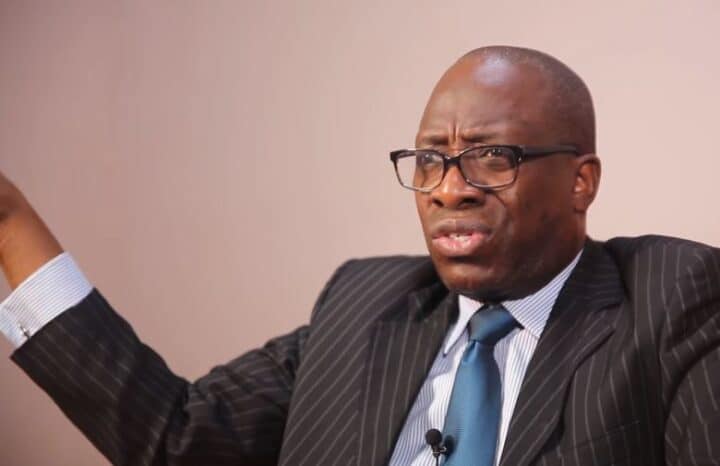ARTICLE AD
A former Minister of Foreign Affairs, Prof. Bolaji Akinyemi, has urged President Bola Tinubu not to get carried away with free access to loans from the Chinese government without considering its implications on the economy.
The professor of political science gave the warning when he was featured as a guest on Sunday’s Channels Television’s Politics Today.
His caution comes two days after the President described his official engagements with President Xi Jinping and Premier Li Qiang at the 2024 Summit of the China-Africa Cooperation in Beijing, China’s capital as a ‘very good and successful.
Nigeria is indebted to five global powers namely China, France, Japan, India, and Germany.
According to the Debt Management Office, China is Nigeria’s largest creditor.
The country owes China about 84 per cent of the entire $5b debt, which amounts to over $4b.
As of a few years ago, some loans have payment plans of up to 20 years with some moratoriums of up to seven years.
But Akinyemi insisted that Tinubu cannot afford to repeat the mistakes of successive administrations in the country.
He said, “Of course, we should be very careful. That is where I was going. But don’t isolate the focus on China. There are also debts we owe the United States and some medium-power countries. What we need to do is to be careful about two things. One, we shouldn’t default on that debt.
“A month before this African-Chinese summit, Nigerian sovereign goods were being impounded all around the world at the instigation of a Chinese company. So, China is not going to serve us anything on global order. We have to be careful that we fulfill our side of the bargain, not only with China but with all the other countries that we may be doing deals with.
“It is a shame on our status and pride for our sovereign goods to be seized because we are defaulting from fulfilling our part of the agreements. This leads me to the second factor. Nigeria, as a sovereign country, needs to keep an eye on the types and content of agreements being signed by what we call the sub-nationals.”
Continuing, the diplomat affirmed that states are not recognized as entities in the international global system.
He also warned against placing corrupt persons in charge of toll collections of the projects facilitated with such debts.
“Nigeria is the sovereign entity. Therefore, it is Nigeria that will be held responsible if states default in fulfilling agreements signed and if governors come to the scene and decide to cancel agreements signed by their predecessors. We should get out of that mental thinking. The emperors in Nigeria are not the president in Abuja.
“The emperors in the political system are the governors because nobody controls them. They have the assemblies and the judges in their pockets. And yet, internationally, it is Nigeria that gets into problems. So, those are the two factors. There is a third one, which is our behaviour, our DNA. Part of the problem we are starting to run into in terms of the infrastructure projects with the Chinese is that Nigerians who are supposed to be collecting money for trips (tolls) are pocketing the money.
“They bring their own POS. And if the passengers go through the right system, get the tickets directly, and when the conductor says ‘Oh, there is something wrong with what you bought. You have to buy another ticket.’ That one is going into its pocket. How are we to refund the loan on those infrastructural projects when we have corrupt Nigerians? We tend to focus on corruption at the very top.”

 2 months ago
21
2 months ago
21 

